Normal Rhyming Worksheets for Ages 6-9
13 filtered results
-
From - To
Discover our "Normal Rhyming Worksheets for Ages 6-9," designed to make learning fun and engaging for young children. These worksheets enhance phonemic awareness and early literacy skills by encouraging kids to recognize and create rhyming words through vibrant and interactive exercises. Perfect for use both in the classroom and at home, these resources cater to 1st to 3rd graders, ensuring they build strong foundations in reading and spelling. Our age-appropriate, playful activities help learners to thrive in language arts while fostering a love for words and rhythm. Give your child a head start in their reading journey with our fun rhyming worksheets!
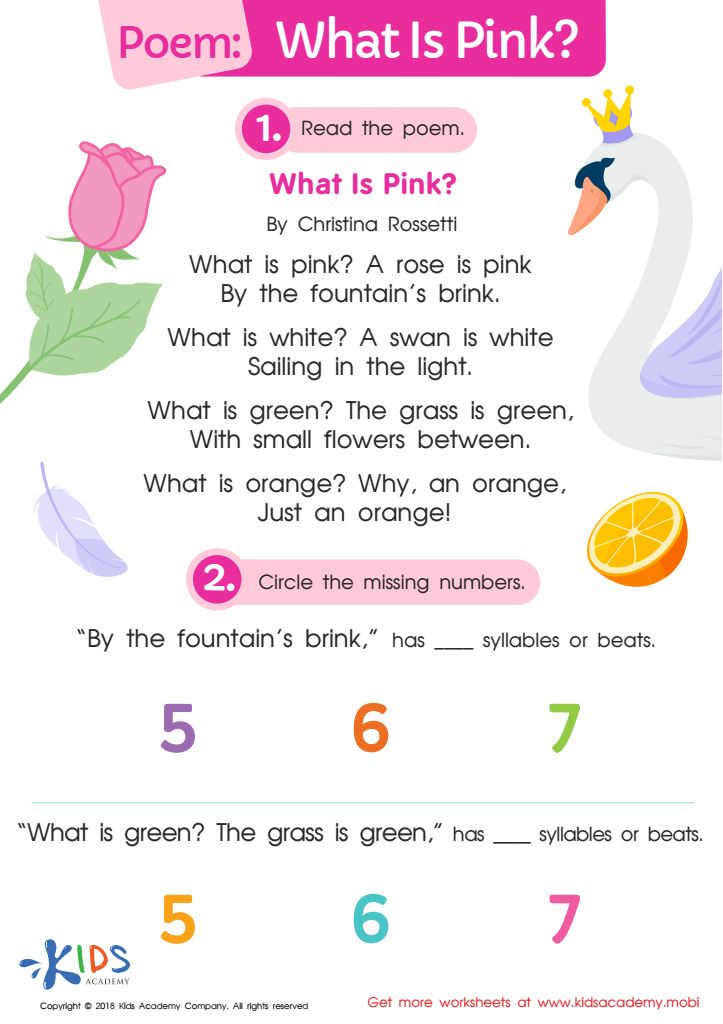

Poem: What Is Pink? Worksheet
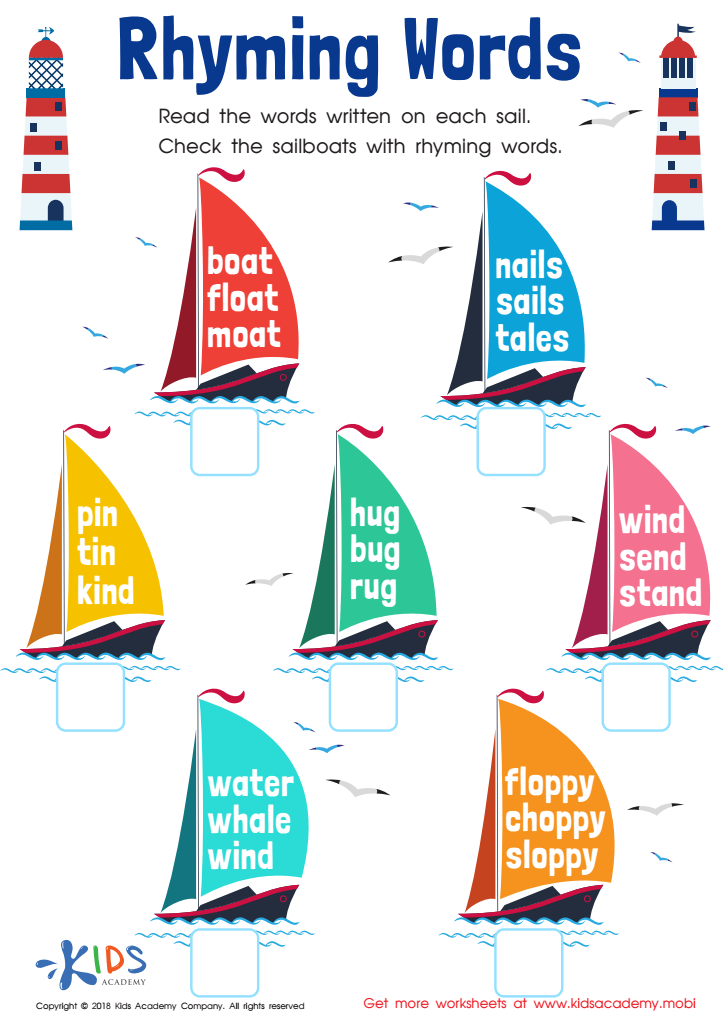

Rhyming Words Worksheet
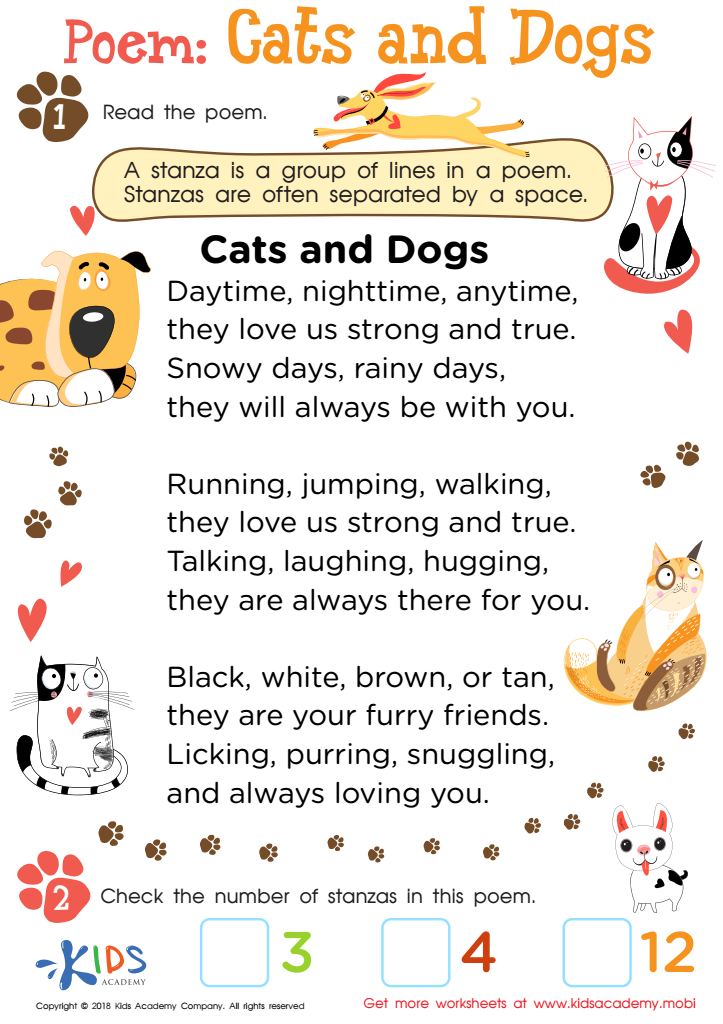

Poem: Cats and Dogs Worksheet


Rhymes in Poems Worksheet
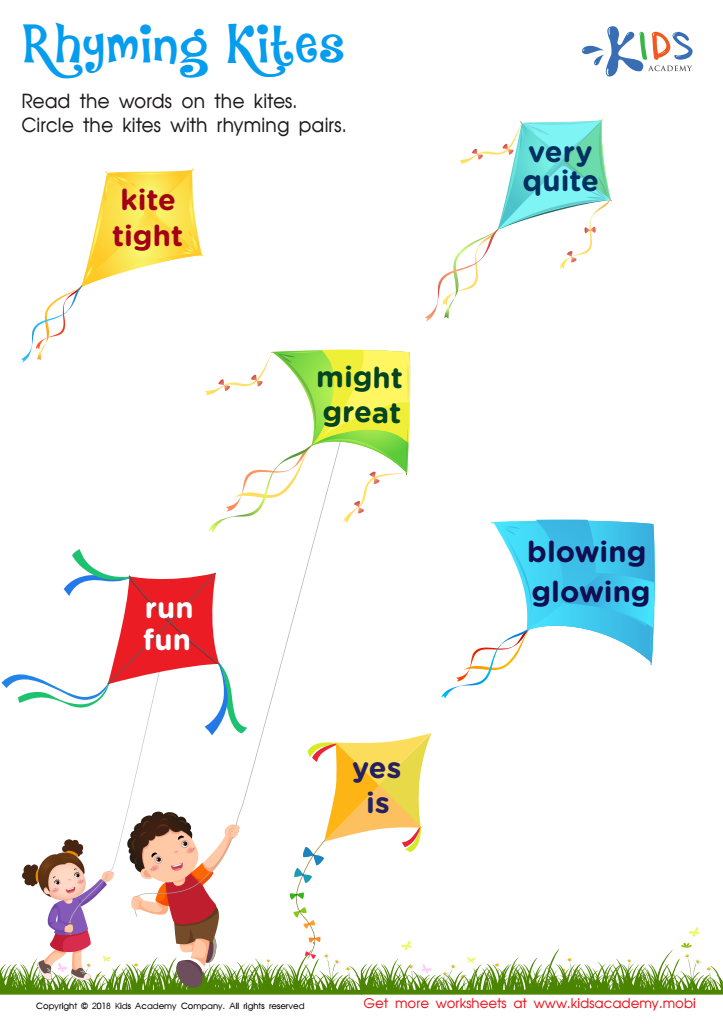

Rhyming Kites Worksheet
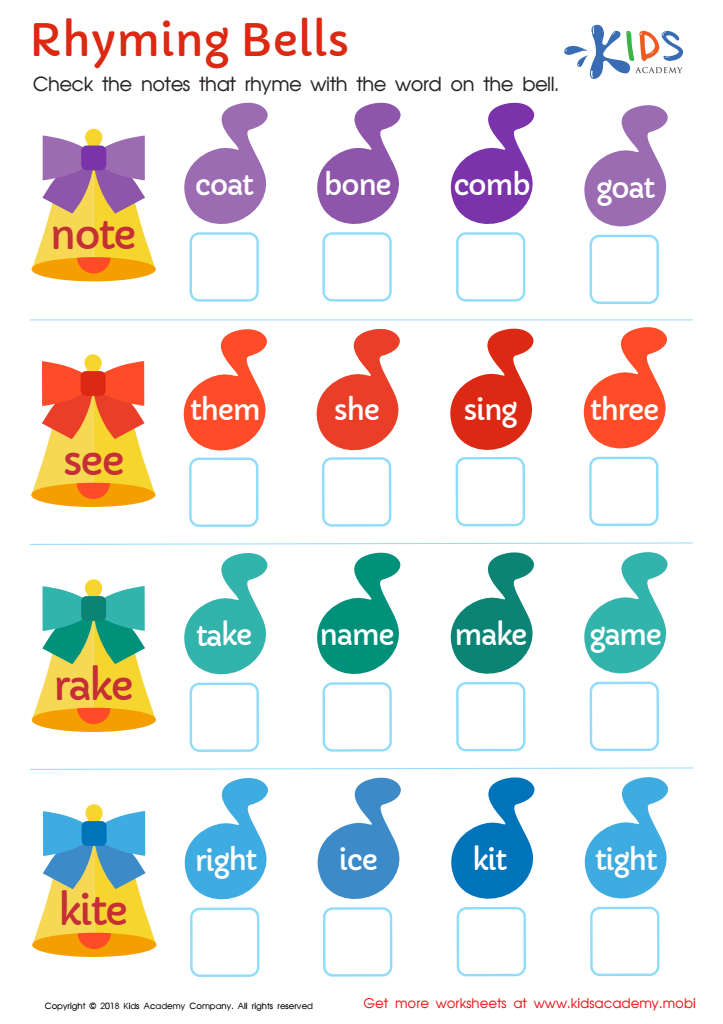

Rhyming Bells Worksheet
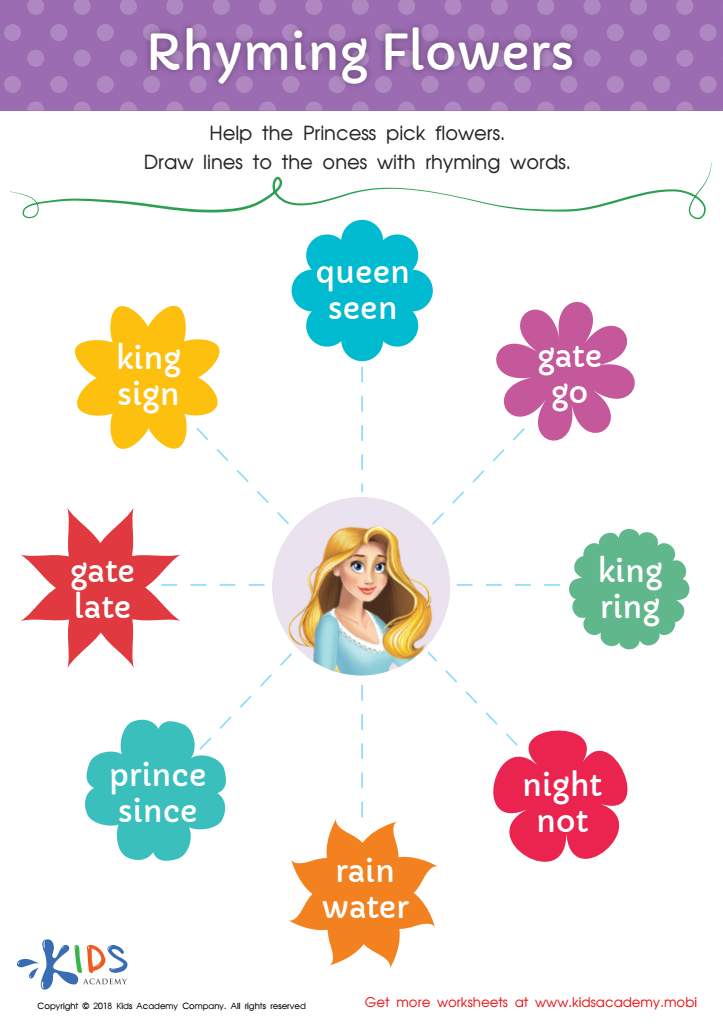

Rhyming Flowers Worksheet


Rhyming Words: Assessment Worksheet
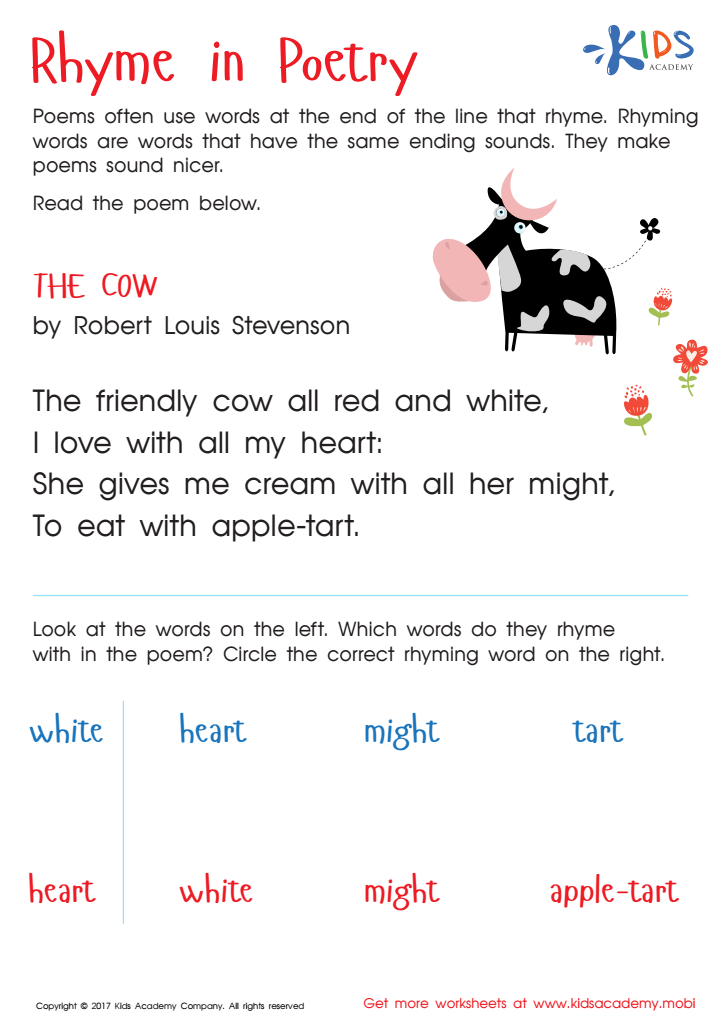

Rhyme In Poetry Worksheet


First Words: Picture Rhymes Worksheet


Rhyming Words Rhyming Worksheet
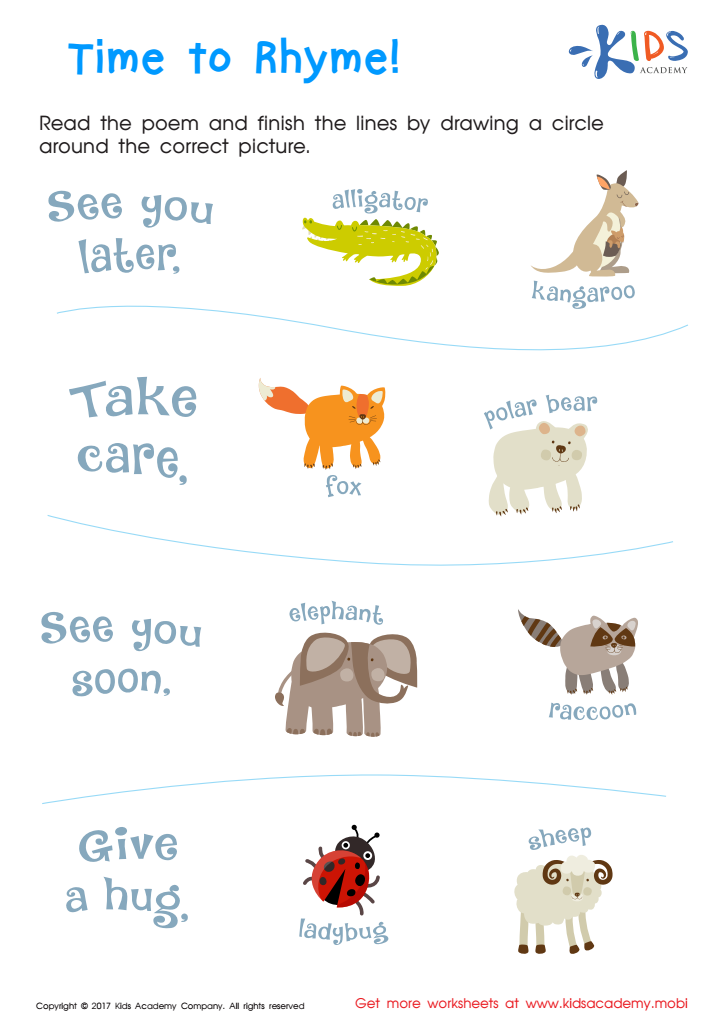

Time to Rhyme Rhyming Worksheet
Normal rhyming activities are fundamental in fostering early literacy skills for children aged 6-9. Rhyming helps children discern patterns in spoken and written language, which is critical for developing phonemic awareness—the ability to hear, identify, and manipulate individual sounds in words. This foundational skill is pivotal for proficient reading and spelling. When children engage in rhyming, they learn to recognize common word families and sound structures, which simplifies the process of learning new words and enhances vocabulary development.
Moreover, rhyming can make learning enjoyable and engaging, thus promoting a positive attitude towards reading and language arts. Through songs, poems, and rhyming games, children are more likely to participate actively and retain information. Rhyming activities also support memory and recall, as the repetitive and rhythmic nature of rhymes helps children remember sounds and words more easily.
Additionally, rhyming promotes children's creative and critical thinking. Inventing their own rhymes encourages them to experiment with language and explore different word combinations, fostering an understanding of linguistic flexibility and creativity. These cognitive skills are useful not just in language arts, but across all areas of learning. In essence, incorporating rhyming activities is a playful yet powerful way for parents and teachers to bolster essential literacy and cognitive skills in young learners.

 Assign to the classroom
Assign to the classroom










